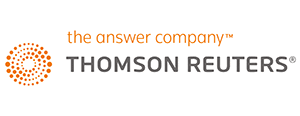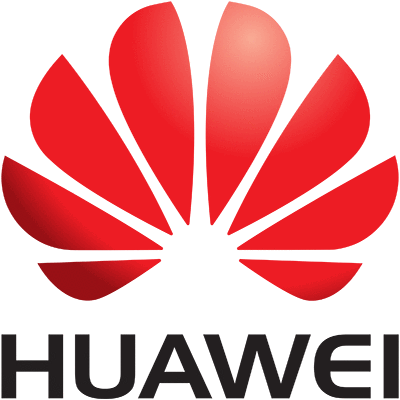Calls
- Home /
- Calls /
- KDD 2018 Call for Applied Data Science Papers
KDD 2018 Call for Applied Data Science Papers
Key Dates
- Submission: February 11, 2018
- Notification: May 6, 2018
- Camera-ready: May 25, 2018
- Short Promotional Video (Required): June 4, 2018
- Source Code and Presentation (Optional): June 4, 2018
- Conference (London, UK): August 19 to August 23, 2018
- All deadlines are at 11:59PM Alofi Time. There will be absolutely no exception to these deadlines.
Description
We invite submissions of papers describing designs and implementations of solutions and systems for practical tasks in data mining, data analytics, data science, and applied machine learning. The primary emphasis is on papers that either solve or advance the understanding of issues related to deploying data science technologies in the real world.
Submitted papers will go through a peer review process.
The Applied Data Science Track is distinct from the Research Track in that submissions focus on real-world problems and systems that are deployed or are in the process of being deployed. Submissions must clearly identify one of the following three categories they fall into: “deployed”, “in-progress”, or “observational”. The ADS Chairs might shift a submission from one category to another, if they find that the submission is misplaced. The criteria for submissions in each category are as follows:
CATEGORY Deployed: Must describe implementation of a system that solves a significant real-world problem and is in current use. The paper should present the problem, its significance to the application domain, the decisions and tradeoffs made when making design choices for the solution, the deployment challenges, and the lessons learned. Evidence must be provided that the solution has been deployed by quantifying post-launch performance. Papers that describe enabling infrastructure for large-scale deployment of applied machine learning also fall in this category. An example might be a deployed system that collects heartbeat audio from mobile phones during a marathon race and uses machine learning to identify potentially irregular signals and to alert support personnel.
Examples for the category “Deployed” - from ADS 2017:
- HinDroid: An Intelligent Android Malware Detection System Based on Structured Heterogeneous Information Network
- Cascade Ranking for Operational E-commerce Search
CATEGORY In-progress: As above, except that the system has not been deployed yet or (rarely!) a conclusion has been reached that the problem is unsolvable. In addition to the content required for deployed solution papers, in-progress papers must explain what fundamental insights were achieved so far, what milestones were reached, and what are the obstacles to deployment. Straightforward improvements over trivial baseline solutions are unlikely to qualify. Continuing the example above, an in-progress paper might present a system that achieves reasonable error rates in an experiment with many volunteers but suffers from interferences among mobiles that are located very close to each other.
Examples for the category “In-progress” - from ADS 2017:
- DeepSD: Generating High Resolution Climate Change Projections through Single Image Super-Resolution
- TFX: A TensorFlow-Based Production-Scale Machine Learning Platform
- Automated Categorization of Onion Sites for Analyzing the Darkweb Ecosystem (poster)
CATEGORY Observational: Must describe important insights into the input data and/or the performance of a significant real world applications and explain their practical impact. Continuing the example above, an observational paper might present an analysis of a large number of recordings taken during in-hospital cardiac stress tests juxtaposing the system’s performance to that of human cardiologists, the correlation between “murmurs” and other heart tests, the size of the models that can analyze the audio satisfactorily, etc, and from here derive whether such a system is currently realistic or will have to wait for better sensors and more on-device computing power.
Examples for the category “Observational” - from ADS Track 2017:
- A Dirty Dozen: Twelve Common Metric Interpretation Pitfalls in Online Controlled Experiments Backpage and Bitcoin: Uncovering Human Traffickers
- Collecting and Analyzing Millions of mHealth Data Streams (poster)
- AESOP: Automatic Policy Learning for Predicting and Mitigating Network Service Impairments (poster)
Please consult the guidelines for authors here.
Submission directions
KDD is a dual track conference hosting both a Research track and an Applied Data Science track. Due to the large number of submissions, papers submitted to the Research track will not be considered for publication in the Applied Data Science track and vice versa. Authors are encouraged to read the track descriptions carefully and to choose an appropriate track for their submissions. Following KDD conference tradition, reviews are not double-blind, and author names and affiliations should be listed.
Submissions are limited to a total of 9 (nine) pages, including all content and references, and must be in PDF format and formatted according to the new Standard ACM Conference Proceedings Template. For LaTeX users: unzip acmart.zip, make, and use sample-sigconf.tex as a template; Additional information about formatting and style files is available online at: https://www.acm.org/publications/proceedings-template. Papers that do not meet the formatting requirements will be rejected without review.
Website for submissions: https://easychair.org/conferences/?conf=kdd18
Important policies
Reproducibility
Submitted papers will be assessed based on their novelty, technical quality, potential impact, insightfulness, depth, clarity, and reproducibility. Authors are strongly encouraged to make their code and data publicly available whenever possible. Algorithms and resources used in a paper should be described as completely as possible to allow reproducibility. This includes experimental methodology, empirical evaluations, and results. The reproducibility factor will play an important role in the assessment of each submission.
Authorship
Every person named as the author of a paper must have contributed substantially both to the work described in the paper and to the writing of the paper. Every listed author must take responsibility for the entire content of a paper. Persons who do not meet these requirements may be acknowledged, but should not be listed as authors. Post-submission changes to the author list are not allowed.
Dual submissions
Submitted papers must describe work that is substantively different from work that has already been published, or accepted for publication, or submitted in parallel to other conferences or journals. However, there are several exceptions to this rule.
- Submission is permitted for a shorter version of a paper submitted to a journal, but not yet published. Authors must declare such dual-submissions on the submission form and must ensure that the journal in question allows concurrent submissions to conferences.
- Submissions are permitted for papers presented or to be presented at seminars, conferences or workshops without proceedings.
- Submissions are permitted for papers that have previously been made available only in the form of technical report with no peer reviews, in particular on arXiv.
Conflicts of interest
During the submission process, enter the email domains of all institutions with which you have an institutional conflict of interest. You have an institutional conflict of interest if you are currently employed or have been employed at this institution in the past three years, or you have extensively collaborated with this institution within the past three years. Authors are also required to identify all PC/SPC members with whom they have a conflict of interest, eg, advisor, student, colleague, or coauthor in the last five years.
Attendance
For each accepted paper, at least one author must attend the conference and present the paper. Authors of all accepted papers must prepare a final version for publication, a poster, and a three-minute short video presentation.
Copyright
Accepted papers will be published in the conference proceedings by ACM and also appear in the ACM Digital Library. The rights retained by authors who transfer copyright to ACM can be found here.
AUTHORS TAKE NOTE: The official publication date is the date the proceedings are made available in the ACM Digital Library. This date for KDD 2018 is on or after Jul 11, 2018. The official publication date affects the deadline for any patent filings related to published work.
Save the Date
KDD 2018 - London, United Kingdom. 19 - 23 August 2018
The annual KDD conference is the premier interdisciplinary conference bringing together researchers and practitioners from data science, data mining, knowledge discovery, large-scale data analytics, and big data.









































